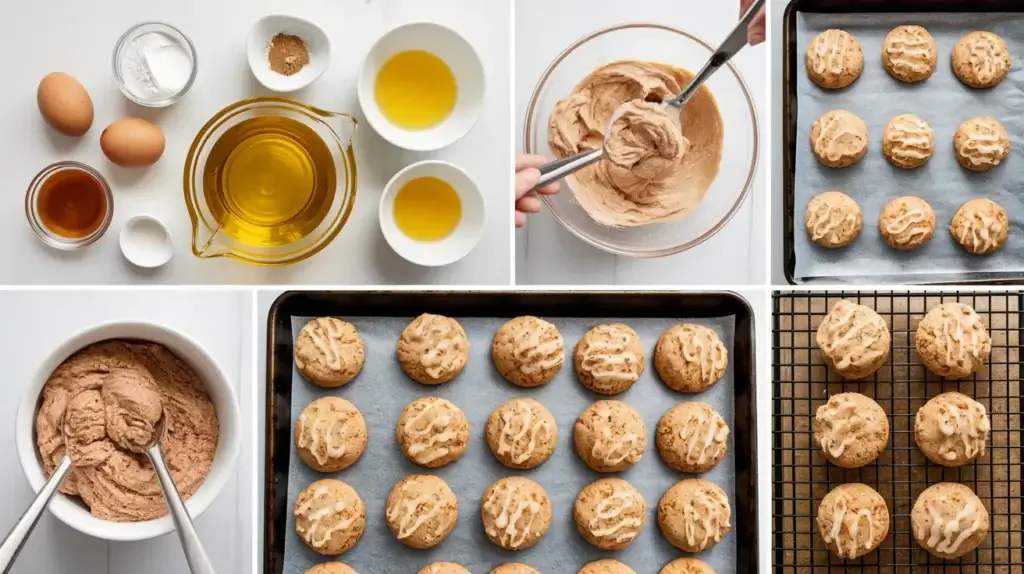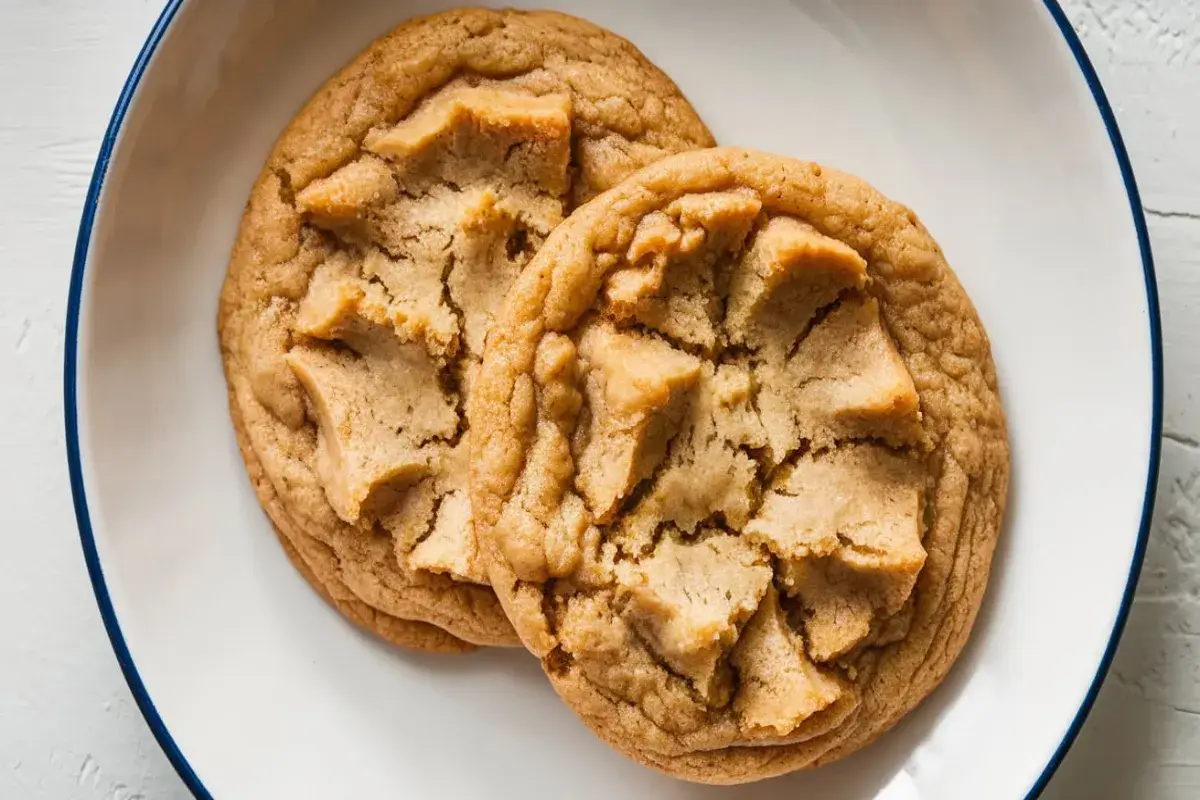Baking is a beloved pastime for many, but it can quickly turn stressful when you’re missing a key ingredient. One of the most common dilemmas bakers face is running out of oil, especially when making cake mix cookies. This often leads to the question: “Can you substitute butter for oil in cake mix cookies?” The simple answer is yes, but as with any substitution in baking, there are a few things to consider to ensure your cookies turn out just right.
What is Cake Mix?
Cake mix is a convenient, pre-packaged blend of ingredients like flour, sugar, and leavening agents, designed to make baking easier and quicker. These mixes usually require the addition of wet ingredients such as eggs, water, and oil. Oil is commonly used in cake mix cookies because it contributes to the moisture and tenderness of the final product. But what if you’re out of oil? Or maybe you’re curious if butter can bring something new to your cookies? Let’s explore.
The Science Behind Fats in Baking for Oil in Cake Mix Cookies
Understanding the role of fats in baking is crucial when considering substitutions. Fats like butter and oil not only add flavor and moisture to baked goods but also significantly impact the texture and structure of cookies.
Role of Fats in Baking: Butter vs. Oil
Fats, whether in the form of butter or oil, serve multiple purposes in baking. They coat flour proteins, which prevents too much gluten from forming, resulting in a tender texture. Fats also help in leavening by trapping air during mixing, giving your cookies a light and airy structure.
- Butter: Butter is composed of approximately 80% fat, with the remaining 20% being water and milk solids. The water content in butter turns to steam during baking, contributing to leavening. Additionally, the milk solids in butter add a rich, distinct flavor to your cookies.
- Oil: Unlike butter, oil is 100% fat, meaning it doesn’t contribute to leavening like butter does. Instead, oil creates a denser texture due to the lack of water content. However, oil’s neutral flavor and ability to produce moist, tender cookies make it a popular choice in many recipes.
Butter vs. Oil: Differences in Baking
When deciding whether to use butter or oil in your cake mix cookies, it’s important to understand how each fat affects the final product. Butter adds a creamy, rich flavor and helps your cookies achieve a crisp edge with a soft center. In contrast, oil typically results in a denser, chewier texture, which some bakers might prefer.
Butter has a lower melting point than oil, which means it melts faster during baking. This can cause your cookies to spread more, leading to a thinner, crispier texture. On the other hand, oil stays liquid at room temperature, helping the dough retain its shape and resulting in a more uniform texture throughout the cookie.
How to Substitute Butter for Oil in Cake Mix Cookies
Now that we’ve covered the basics, let’s dive into how to substitute butter for oil in your cake mix cookies. The good news is that this substitution is relatively straightforward, but there are a few key steps to follow to ensure your cookies turn out perfectly. A great internal link opportunity is the “How to Make Box Mix Cookies Better”. It provides tips that could complement your advice on substitutions.
Step-by-Step: Substituting Butter for Oil
- Conversion Ratio: Use a 1:1 ratio when substituting butter for oil. If your recipe calls for 1/2 cup of oil, use 1/2 cup of melted butter instead. This ratio works well in most baking recipes, ensuring consistent fat content.
- Melting the Butter: Since oil is liquid at room temperature, you’ll need to melt your butter before adding it to the cake mix. Cut the butter into small pieces and melt it gently in a microwave or on the stove. Let the butter cool slightly before mixing it into the cake mix to prevent premature cooking of the eggs, which could lead to a denser texture.
- Incorporating Butter: After melting and slightly cooling the butter, add it to the cake mix as you would with oil. Mix thoroughly to ensure even distribution throughout the dough. This helps the cookies bake evenly, achieving the desired texture.
Impact on Cookie Texture and Taste
Substituting butter for oil will undoubtedly change the texture and taste of your cookies. Here’s what you can expect:
- Texture: Cookies made with butter tend to have a more tender crumb with a slight crispness around the edges. They may also spread more than those made with oil, resulting in a thinner, crisper cookie. If you prefer a thicker, chewier cookie, consider chilling the dough before baking or slightly reducing the amount of butter.
- Taste: Butter adds a rich, creamy flavor that oil simply can’t match. This is why many bakers prefer using butter in their cookies; it gives the final product a more homemade, indulgent taste. However, if you’re accustomed to the neutral flavor of oil, you may notice a significant difference in the taste of your cookies when using butter.
Other Substitutes and Their Effects
If you’re out of both oil and butter, or if you’re looking for a healthier alternative, there are several other substitutes you can use in your cake mix cookies. Each substitute will affect the texture and flavor of your cookies differently, so it’s important to choose the one that best suits your needs.
Alternative Substitutes for Oil in Baking
- Unsweetened Applesauce: This is a popular substitute for oil in baking because it adds moisture without the fat. It’s also a great way to cut calories if you’re looking for a healthier option. However, using applesauce will make your cookies softer and less chewy, so it may not be the best choice if you prefer a firmer texture.
- Greek Yogurt: Greek yogurt is another healthy substitute for oil. It adds moisture and a slight tang to your baked goods. When using Greek yogurt as a substitute, use it in equal amounts to the oil called for in the recipe. Be aware that Greek yogurt will make your cookies denser, so it’s best used in recipes where a thicker texture is desired.
- Avocado: This might sound unusual, but mashed avocado can be used as a substitute for oil in a 1:1 ratio. Avocado adds healthy fats and a subtle flavor to your cookies, though it may give them a slight green tint. If you’re looking to add more nutrients to your baked goods, avocado is a great option.
How to Choose the Right Substitute
When choosing a substitute for oil, consider the flavor and texture you want to achieve in your cookies. For a richer flavor, stick with butter. If you’re looking for a lower-calorie option, try using unsweetened applesauce or Greek yogurt. And if you’re feeling adventurous, give avocado a try!
Each of these substitutes has its pros and cons, so it’s all about experimenting to see what works best for you. Remember, baking is both a science and an art, so don’t be afraid to tweak things to suit your taste.
Frequently Asked Questions (FAQs)
Let’s address some of the most common questions bakers have about substituting butter for oil in cake mix cookies. These FAQs are based on what people also ask online, making them highly relevant for anyone considering this substitution.
What Happens if I Replace Oil with Butter in Cookies?
Replacing oil with butter results in cookies that are richer in flavor and slightly crispier around the edges. However, because butter has a lower melting point than oil, your cookies may spread more during baking, leading to a thinner, crispier texture. If you prefer a thicker cookie, consider chilling the dough before baking or slightly reducing the amount of butter.
Is It Better to Make Cake Mix Cookies with Butter or Oil?
The answer to this question depends on what you’re looking for in a cookie. If you want a richer, more flavorful cookie with a tender texture, butter is the way to go. The milk solids in butter add a depth of flavor that oil simply can’t match. On the other hand, if you prefer a denser, chewier cookie, you might want to stick with oil. It all comes down to personal preference and the specific texture and flavor you’re aiming for. Consider linking to the “Cake Mix Cookies” recipe page where this debate could be further explored.
Can You Substitute Butter for Oil in Betty Crocker Cookie Mix?
Yes, you can substitute butter for oil in Betty Crocker cookie mix. To do this, simply melt the butter and use it in a 1:1 ratio with the oil called for in the recipe. Be sure to let the butter cool slightly before mixing it in to avoid cooking the eggs prematurely.
How Much Butter Equals 1/2 Cup of Oil?
To replace 1/2 cup of oil, you would use 1/2 cup of melted butter. This is a direct substitution that’s easy to remember and works well in most baking recipes. Just be sure to melt the butter and let it cool slightly before adding it to your mix.
Conclusion and Final Thoughts
In the end, substituting butter for oil in cake mix cookies is a simple and effective way to enhance the flavor and texture of your baked goods. While both fats have their place in baking, butter will give your cookies a richness and depth of flavor that’s hard to beat. Whether you’re looking to improve the taste of your cookies or simply experimenting with new ingredients, using butter instead of oil is a great option.

